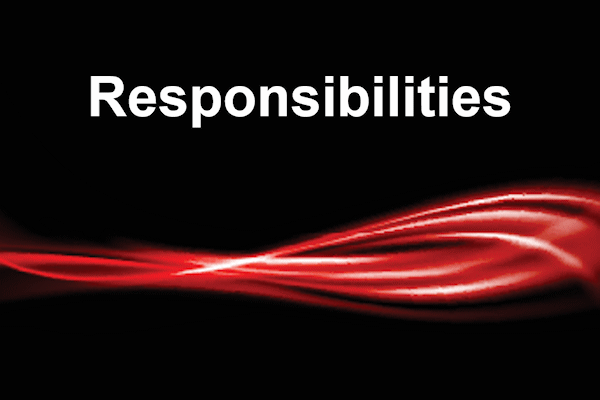By Mike Loughrin, CEO for Transformance Advisors
Project Oriented Approach
The best approach for an organizational transformation is running well-defined projects.
Improvement is not found through chaotic cost cutting. It is not empowering everyone to tinker around in some wishful delusion about reaching success through zero cost and zero leadership engagement.
Alternatives exist to running projects and these other approaches can, sometimes, create incremental improvement. They will rarely propel an organization to success. In terms of risk, they often become a disaster which can take years to overcome.
You may have seen, or even experienced, alternatives such as:
- Training everyone on a few problem solving tools and closing the class with a commitment from management to watch the magic happen
- Hiring someone with an exaggerated resume – usually a chaotic cost cutter claiming to have created astonishing results all by themselves
- Following the advice of some Lean charlatan claiming everything is easy and the first thing you do will require a complete change of your culture.
- Eliminating all inspections, after some Six Sigma imposter tells you it will create the illusion of zero defects
- Calculating great financial rewards for a new improvement program – and seeing even greater savings when you budget zero investment for the work

The Right Place
Fortunately, people reading this article are in the right place. You have:
- learned your lessons on what not to do
- avoided the craziness of others
- simply been lucky
For me, I’ve been lucky. And, through luck, I have seen tremendous success leveraging projects as a key aspect to making sustainable organizational improvement. Not being a fool, I have converted my luck into wisdom.
But, it’s not just luck or wisdom which leads to project success. One very important ingredient is knowing how leveraging projects, for transformation, requires the steady hand of Project Champions. Success requires someone providing leadership and coaching to the project team.
Just like any job, There are 2 critical aspects for anyone seeking to be a Project Champion. They need:
- Specific knowledge and experience – the job requirements
- Clearly defined and achievable expectations – the job responsibilities
Let’s look closer at the requirements and responsibilities for the Project Champion job.

“A project champion is the person who owns the leadership role and delegates the project management role.”
– Project Champion Definition


Requirements
- Organizational credibility – knowing the key players and having leadership responsibilities
- Methodology knowledge – understanding the concepts, milestones, and tools used for your chosen improvement program
- Industry knowledge – insight into the competition and best practices or emerging trends which need investigation
- People skills – expertise to leverage emotional intelligence and conflict resolution skills when dealing with all stakeholders
- Coaching skills – an ability to ask great questions, lead structured conversations, and develop the skills of those being coached
Responsibilities
- Secure the level of stakeholder engagement required for success – the right people on the bus
- Ensure each milestone is complete and correct – the team executes each step in the chosen improvement methodology
- Inspire the team to design a wonderful solution – leap frog the competition by reaching for the best ideas
- Keep people focused on the task as hand – help the team avoid the dysfunctional traits which can damage project teams
- Coach the project team to success – advice and guidance without telling them exactly what they need to do
Project Champions Are Hard To Find
The knowledge and skills, or job requirements for being a Project Champion can be hard to find in many organizations.
A few of the challenges:
- Too many executives are leaders of one functional silo and have limited knowledge of the other parts of the organization
- Potential champions have limited knowledge of improvement programs such as Six Sigma or Lean Transformation
- The constant push for cost cutting and fighting fires overwhelms the need to stay up to date on competitors and the possibilities of leveraging best practices or emerging trends
- Working with people to navigate the organizational change process takes those special and rare skills known as emotional intelligence and conflict resolution
- Coaching is one very hot topic and recognized as a skill which has not been included in the career development of many leaders who are now in a position to need this ability

A Mirror Image
I’m reminded of a comment to me from the chief operations officer for one company. He boasted how his organization did not find projects to be a useful approach for their improvement activities. He “blamed” his team for failing at a few projects before his decision to stop any more attempts. As a chaotic cost cutter, this “leader” never developed the skills required to be a Project Champion and was unprepared to be the leader expected when you are the chief operations officer. His ability to be a Project Champion was a mirror image of his experience and knowledge. He had neither the job requirements or an ability to do the job responsibilities. His response to failure was to blame his team.
Fortunately, a majority of leaders do have the knowledge and skills. And for the others, it’s time to teach an old dog new tricks.
I suspect you have noticed how the 5 job requirements are a mirror image of the 5 job responsibilities.
Let’s look closer at how a Project Champion leverages their job requirements to accomplish their job responsibilities.

1. Stakeholder Engagement
The Project Champion must seek and secure a level of engagement which tells everyone they are serious about the project.
For any project, the customers, suppliers, managers, and workers impacted by the scope of the project need to agree the project is a good idea.
The best improvement projects are cross-functional and require team members from each area in scope. The Project Manager needs to be someone able to lead this cross-functional team.
For large projects, a steering committee needs to be organized. The members of this committee will have leadership roles for functional areas in scope. They are busy people with limited time. The champion needs to get these leaders onboard with agreement to commit their time, talent, and wisdom. In many cases, these steering committee members will need to assign one or more of their people to the project team.
As a final act in gaining stakeholder engagement, the champion needs to secure funding for the project. Someone without the organizational power to fund a project has no business masquerading as a Project Champion. Funding a project signals to the entire organization how an improvement project is an investment in building a better organization.

2. Milestone Completion
The best improvement methodologies have defined steps and deliverables. These make great milestones.
In your search for the elusive silver bullet, a Project Champion can find one in the step-by-step methodologies. The secret, to being a great champion, is to totally engage and focus when the project team announces they have reached the end of each step. The champion does not have to be an expert at everything – they do need to understand the specific methodology and what it takes to complete each step.
It is at the milestones where the project team must demonstrate they have dotted all the i’s and crossed all the t’s. Treat these milestones as gateways to the next step.
A sampling of standard methodologies and their milestones are listed below.

Value Stream Mapping |
|---|
| Project Charter |
| Current State Value Stream Map |
| Future State Value Stream Map |
| Implementation |
| Continuous Improvement |
Six Sigma |
|---|
| Define |
| Measure |
| Analyze |
| Improve |
| Control |
A3 Problem Solving |
|---|
| Problem Definition |
| Root Cause Analysis |
| Countermeasures |
| Implementation |
| Follow-up |
Accelerated SAP |
|---|
| Project Preparation |
| Business Blueprint |
| Realization |
| Final Preparation |
| Go Live and Support |
Agile Software Development |
|---|
| Plan |
| Design |
| Test |
| Build |
| Accept |
| Deploy |
Changeover Reduction |
|---|
| Observe a Changeover |
| Identify Internal vs. External Elements |
| Separate External Elements |
| Convert Internal Elements to External |
| Improve Internal Elements |
| Improve External Elements |
The 5S System |
|---|
| Sort |
| Stabilize |
| Shine |
| Standardize |
| Sustain |
Stage Gate Product Development |
|---|
| Scoping |
| Business Case |
| Development |
| Validation |
| Launch |
3. Wonderful Solutions
An effective Project Champion will inspire the project team to explore solutions which leverage best practices and reach for emerging trends which will become best practices in the future.
It takes research to get outside of the box to go find the best course of action. A champion sees the investment, in an improvement project, as the opportunity to beat the competition. This is not about simple cost cutting and a race to the bottom.
The Project Champion will ask probing questions about what was learned during focus groups, meetings with customers, and analysis of big data. It’s not good enough for the project team to simply dream up some idea without talking with stakeholders and crunching the numbers.

4. Change Management
The pursuit of a wonderful solution will often ruffle some feathers and rock the boat for those comfortable with the status quo. The champion may need to step in and remove roadblocks beyond the power of the project team
By their very nature, projects will seek to change things. If the change is wonderful for everyone, then no problems. However, if the change means one person needs to do something different, or one “out of the loop executive” needs to spend more than 2 cents, then trouble is sure to follow. Even changes which improve customer value, or save tons of money, can encounter roadblocks.
I was working on a value stream mapping project focused on meeting a customer request to cut order response cycle time. The director of quality was totally engaged and eager to see opportunities uncovered in order management, scheduling, purchasing, and operations. He got very quiet when incoming inspection was identified as one of the most damaging activities in the entire value stream. All change was great – as long as it did not involve anything he was responsible for!
An effective Project Champion steps in to remove those roadblocks, which are beyond the control of the team. Removing can be as simple as a short conversation with someone about their attitude and the need for change. The director of quality described above was “asked” to reflect on his resistance to change. The light bulb went on as he realized how silly he had been acting. A great Project Champion does not always need to use threats or other drastic measures.

5. Coaching
I’ve saved the best for last. One of the hottest topics and greatest needs for organizations today – is coaching.
A Project Champion needs to leverage the coaching skills they have been developing for the better part of their career. You do not become a great coach overnight. You certainly don’t go buy some bottle of pills, take two, and call me in the morning.
Guiding a project team to success requires the Project Champion to excel at the 3 biggest responsibilities for any coach:
- Asking great questions – and not simply handing out the answers
- Leading structured conversations – without the feeling of rigid scripting
- Developing the skills of the project team – without any thought of personal glory
For aspiring Project Champions, an investment in developing coaching skills is critical. The topic is beyond the scope of this article. It needs to be on the professional development plan for anyone seeking to be a leader.

A coach provides an individual, or team, with advice and guidance intended to develop skills, improve performance, and promote career advancement
– My Definition
Summary
Organizational transformation is all about the effective execution of projects. The path to success, for project teams, is receiving support from an effective Project Champion – the person who owns the leadership role and delegates the project management role.
As with any job, a Project Champion has specific job requirements and specific job responsibilities. This is not a job you simply add into a busy schedule and hope for the best. The most qualified and effective champions focus on 4 critical areas:
- Stakeholder Engagement
- Milestone Completion
- Wonderful Solutions
- Coaching
Most Project Champions find meeting the requirements, for the coaching responsibility, is an essential part of what they have been doing as part of their career development plan.

Complete A Readiness Assessment Now
Mike Loughrin is the CEO and Founder of Transformance Advisors. He also teaches for Louisiana State University Shreveport and is on the board of directors for the Association for Supply Chain Management Northern Colorado.
Mike brings exceptional experience in industry, consulting services, and education. He has directed several Lean Transformation programs and has helped organizations such as Levi Strauss, Warner Bros., Cabela’s, Constellation Brands, Lexmark, CoorsTek, and Sweetheart Cup.
Keeping a commitment to a balanced life, Mike loves downhill skiing, bicycle rides, and hiking in the mountains. See one of his trails of the month at: Little Switzerland.
Recommendation Reports
What’s Coaching All About?
What is Lean Transformation?
Team Effectiveness Assessment
Improvement Program Assessment
Subscribe to our newsletter
References
What is a Project Champion? by Team Clarizen

